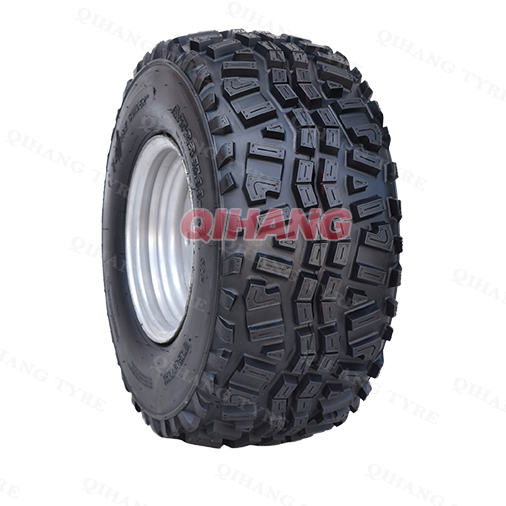Speaking of industrial and agricultural tires and ATV tires, people will think of frequent frictional contact with the ground, but few people will understand, what exactly are these frictional contacts with the ground? So about this part, what position does it occupy in industrial and agricultural tires and ATV tires?
In industrial and agricultural tires and ATV tires, the rubber layer that often rubs against the ground is called the tread. The tread is used to prevent the carcass from mechanical damage and early wear, transmit the traction and braking force of the car to the road, increase the grip between the tire and the road (soil), and absorb the vibration of the tire during operation.
The part of the tread of industrial and agricultural tires and ATV tires that is in direct contact with the road surface during normal driving is called the running surface. The surface of the running surface is composed of blocks and grooves of different shapes. The protruding parts are blocks. The surface of the blocks can increase the grip of the tire and the road (soil) and ensure the necessary anti-slip force of the vehicle. The lower layer of grooves, called the base tread, is used to cushion shocks and impacts.
Tread patterns can be divided into three basic types: regular patterns, off-road patterns and mixed patterns.
Ordinary patterns are used for tires running on hard roads. There are two types of patterns: horizontal (such as pipe) and longitudinal (such as sawtooth). The pattern should make the tire and the road have good longitudinal and lateral grip, low noise and high wear resistance. The pattern is divided into two types: undirected (such as horse teeth) and directional (such as herringbone). The total area of the blocks accounts for 40-60% of the running surface of the tread, and the blocks are thick, so that industrial and agricultural tires and ATV tires have high driving performance and good self-cleaning properties.


